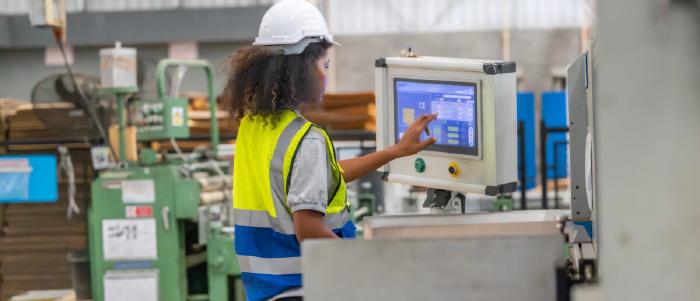
Oct 17 2024
7 min read


Feb
In the modern economic climate where globalization of trade has begun scaling new heights, trade shows are one of the biggest and most effective ways for businesses to showcase their products and services, connect with industry professionals and potential partners, and learn about trending innovations in their market space.
In the crowded trade show landscape, digital signage cuts through the noise. High-resolution displays grab attention with captivating visuals, videos, and interactive experiences. It is a dynamic communication tool that transforms booths from static presentations to immersive brand experiences, leaving a lasting impression.
Explore the wide-ranging uses and benefits of trade show digital signage in taking trade exhibitions to a new level of public engagement.
Digital signage refers to the use of electronic displays to convey information, advertisements, and other messages to viewers. In the context of trade shows, it transcends conventional advertising by offering a versatile medium for presenting products, services, and brand narratives.
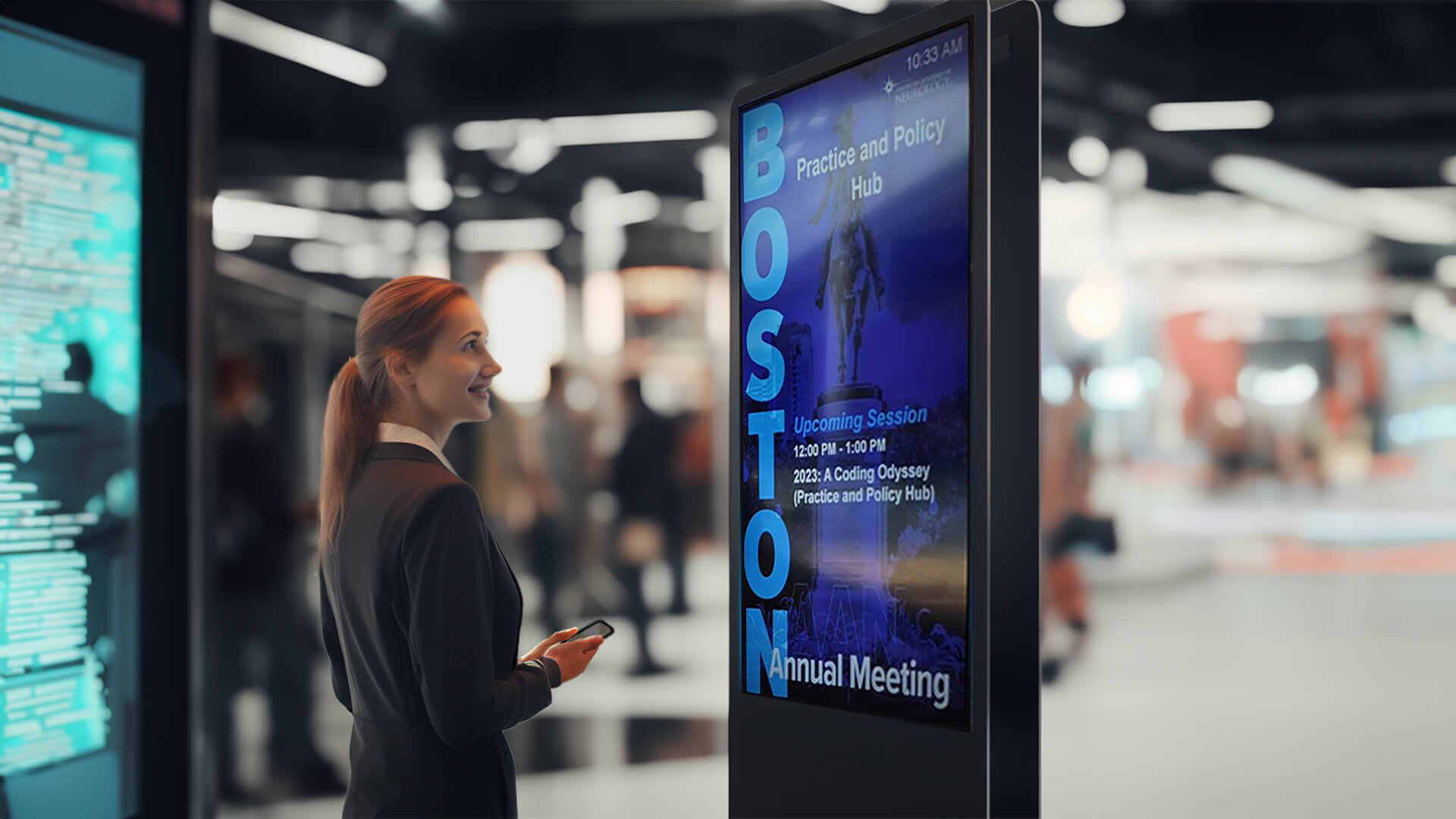
One can imagine the kind of capacity that a trade show would have, as its primary function is to invite businesses from all over to promote themselves to wider audiences. Such events would undoubtedly require a highly efficient manner of audience engagement to successfully leverage the growth of said businesses
The integration of high-resolution displays, interactive technology, and real-time content updates distinguishes digital signage as a superior communication tool, capable of capturing the attention of attendees and providing an immersive brand experience.
Interesting read: 8 Interactive Content Ideas That Will Boost Your Engagement Metrics
The usage of electronic signage to display information about products, services, brand messages, and much more in a large-scale event that hosts multiple businesses would play a crucial role compared to traditional methods of information display in the following ways:
The primary challenge for exhibitors at trade shows is to stand out in a sea of competitors. Digital signage addresses this challenge head-on with:
High-resolution screens with vibrant visuals and animations grab attention amidst the trade show noise.
Videos, slideshows, and live feeds showcase products, services, and brand stories engagingly.

Digital signage transforms passive viewers into active participants through:
Touchscreens and interactive displays: Encourage visitors to explore product features, participate in polls, or leave feedback.
Social media integration: Share user-generated content or live tweets on the display, fostering real-time engagement.
One of the key advantages of digital signage is its ability to provide detailed product information and updates without necessitating constant staff interaction, thereby:
Visitors can access detailed information without requiring constant staff interaction.
Showcase live product demos, event schedules, or company news to keep visitors informed.
The Pickcel mobile application can help update and display product information and news in real-time and from anywhere and at any time of the day. Smooth and effortless, this is a must have for trade shows.
Start For FreeDigital signage also serves as a potent tool for data collection and lead generation by:
Gather valuable insights into which content resonates and how visitors engage with your booth.
Capture leads through digital forms or QR code scans, maximizing return on investment.
The strategic use of digital signage allows exhibitors to:
Analyze engagement data to measure the effectiveness of your digital signage strategy.
Tailor your content based on data insights to maximize lead generation and brand awareness.
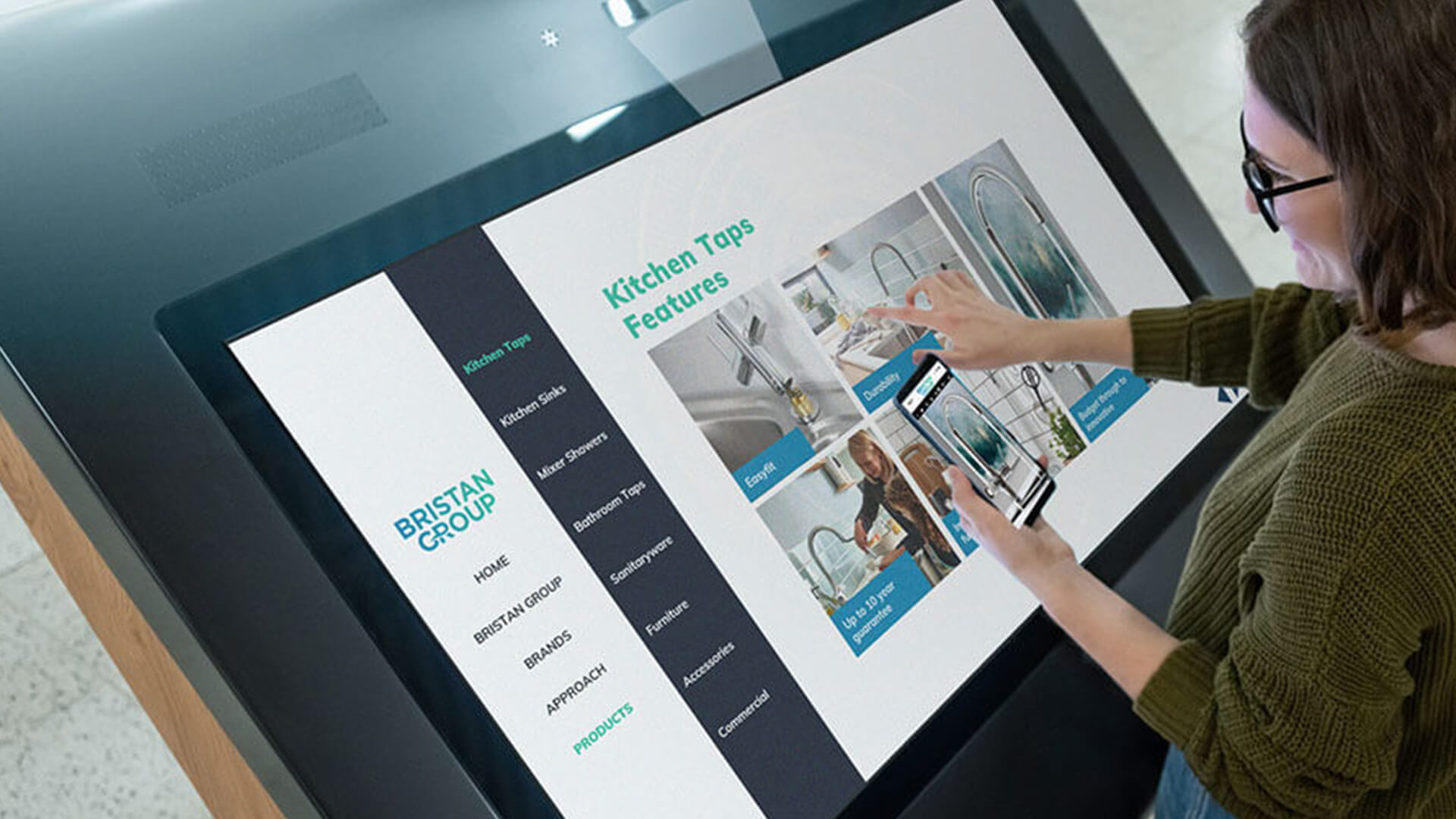
Let us see how some of the biggest companies worldwide are using digital signage for their trade show events:
At CES 2020, Samsung’s booth featured massive interactive walls where visitors could explore their latest TVs and appliances through touchscreens and gesture controls.
At the 2019 Viva Technology show, L’Oreal used digital signage to allow visitors to virtually try on different makeup shades using facial recognition technology.
At the 2019 IAA Mobility Show, BMW used a 360-degree LED tunnel to showcase the future of mobility with a captivating audiovisual experience.
At SXSW 2020, Nike’s booth featured an interactive “House of Innovation” experience, where digital displays narrated the brand’s story and latest innovations.
At CES 2020, Bosch used digital signage with QR codes to allow visitors to download product brochures and enter contests, generating valuable leads.
At MWC 2019, Cisco used interactive touchscreens to capture visitor information and preferences, tailoring their presentations and product demos accordingly.
At various trade shows, Coca-Cola uses digital signage to display user-generated content and live tweets, encouraging social media engagement.
At industry events, GoPro showcases user-captured videos and photos on digital displays, highlighting the brand’s adventurous spirit and user community.
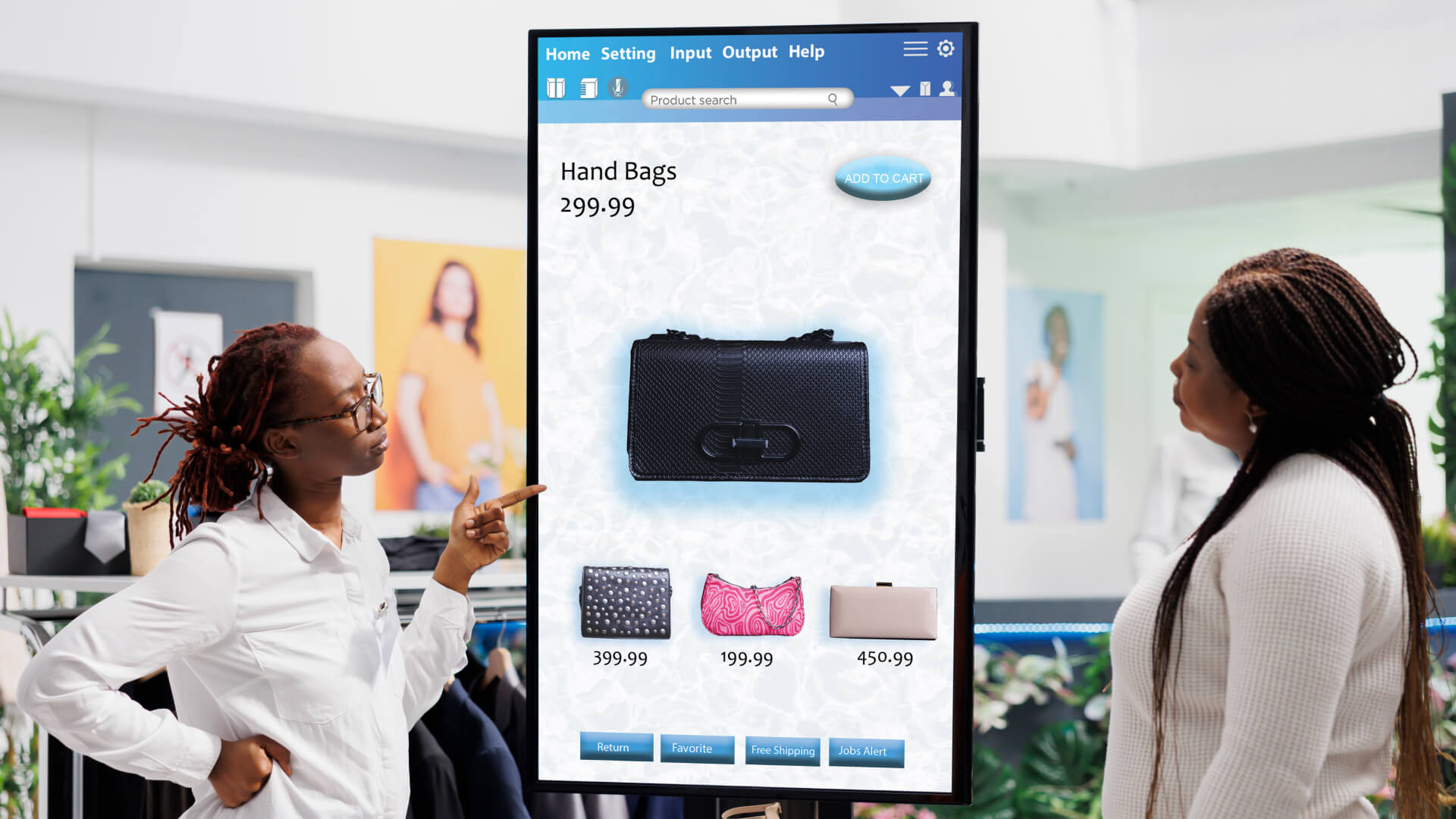
The possibilities for digital signage at trade shows are constantly evolving. Here are some exciting trends to watch:
Overlaying digital elements onto products or immersing visitors in virtual experiences can further enhance engagement. For trade shows, this means attendees can see additional information or digital enhancements when they view products or booth displays.
At trade shows, VR can be used to provide virtual tours of environments that are difficult or impossible to replicate on the show floor, such as walking through a building yet to be constructed or operating machinery in a simulated environment.
AI-powered chatbots or personalized recommendations can offer dynamic interactions and cater for individual visitor interests.They can provide instant responses to attendee queries, guide them through the exhibition, or even schedule meetings, making the experience smoother and more enjoyable.
By analyzing attendee data, AI can offer personalized product or service recommendations, improving the relevance and effectiveness of the interactions.
Interactive displays triggered by gestures, movements, or even emotions can create truly immersive and responsive experiences.
Displays or installations that respond to hand movements or gestures can allow users to navigate menus, explore product features, or interact with content in a natural and intuitive way.
Motion sensors can trigger specific actions or content when an attendee approaches or moves in a certain way, making the experience more engaging and dynamic.
Live data feeds from connected devices can showcase product capabilities and real-time applications. IoT devices can showcase real-time data and interactions, demonstrating the practical applications and benefits of products in a live setting.
By integrating IoT devices with digital signage, companies can provide live demonstrations of how products interact within an ecosystem or respond to various commands, offering a more comprehensive understanding of their capabilities.
As trade shows continue to evolve, digital signage stands at the forefront of this transformation, offering businesses unparalleled opportunities to captivate attention, engage audiences, and collect valuable data.
By embracing these innovative technologies and aligning them with their strategic goals, companies can leverage digital signage to create unforgettable trade show experiences that not only generate leads but also leave a lasting impression on attendees. The future of trade exhibitions lies in the integration of digital signage, promising a new era of public engagement and business growth.
Take complete control of what you show on your digital signage & how you show it.
Take complete control of what you show on your digital signage & how you show it.
Start Free Trial Schedule My Demo
Oct 17 2024
7 min read

Oct 3 2024
8 min read
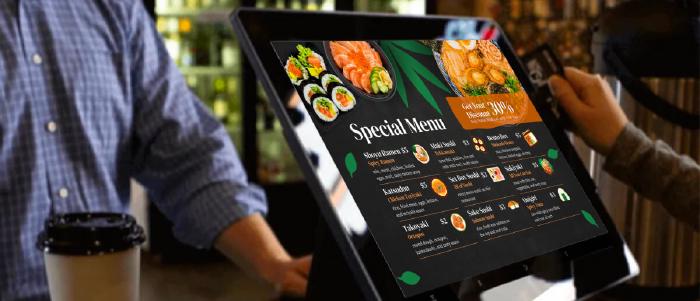
Oct 3 2024
6 min read

Sep 23 2024
5 min read